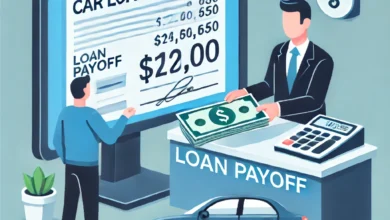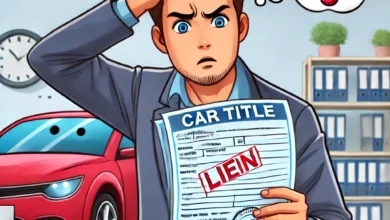If you cosign a car loan are you liable for accidents?

When you co-sign a car loan, it’s often to help someone close to you secure a vehicle they otherwise couldn’t afford. The process seems simple: you lend your good credit standing to a friend or family member. However, it’s crucial to understand the full extent of what you’re agreeing to. One of the most pressing questions is, “if you cosign a car loan are you liable for accidents?” The short answer is
The Basics of Co-Signing a Car Loan
To start, co-signing a car loan means you’re guaranteeing the loan payments for the primary borrower. Your credit score and financial history support their loan application. Should they default, you’re on the hook for the remaining balance. However, this responsibility does not extend to liability for accidents.
Liability in Case of an Accident
Addressing the question, “if you cosign a car loan, are you liable for accidents?” involves understanding a few key points:
1. Ownership vs. Financial Responsibility
As a co-signer, you are not an owner of the vehicle. Liability for accidents typically falls on the person listed on the
2. Insurance Coverage
The car must be insured by the primary borrower. If
Potential Financial Impact on the Co-Signer
While co-signing doesn’t make you liable for accidents, there are still financial risks:
1. Default on Loan Payments
If the borrower defaults, you are responsible for the debt. This can severely impact your credit score and financial stability. Communication with the borrower is key to avoiding surprises.
2. Repossession of the Vehicle
In the event of default, the lender might repossess the car. This does not make you liable for accidents but can lead to significant financial strain, especially if the car’s resale value doesn’t cover the outstanding loan balance.
3. Legal Complications
Though rare, legal issues could arise if the borrower is involved in negligent or criminal activities with the vehicle. This doesn’t directly make you liable for accidents but may require legal counsel to navigate the fallout.
Safeguards and Best Practices
So, how can you protect yourself if you decide to co-sign a loan?
1. Clear Agreement
Establish a written agreement with the primary borrower outlining their responsibilities, including maintaining insurance and timely payments. This document can serve as a reference if disputes arise.
2. Regular Check-Ins
Regularly check the loan status and insurance coverage. Proactively monitoring these aspects can help you catch potential issues early.
3. Contingency Plan
Discuss a contingency plan for unexpected circumstances. Having a backup plan can ease worries and provide a safety net for both parties.
4. Consider Alternatives
If you’re hesitant, explore alternatives. Can you help them improve their credit score to qualify independently? Perhaps a smaller loan amount is manageable without a co-signer?
Conclusion
To sum up, “if you cosign a car loan are you liable for accidents?” The answer is no. Co-signing a loan ties you to the financial aspects but not the legal liabilities of car ownership. Your primary concern remains the financial responsibility tied to the loan itself. Weigh the risks, have transparent conversations, and take necessary precautions to protect your financial well-being. By doing so, you can help your friend or family member while safeguarding yourself from unexpected financial pitfalls.










